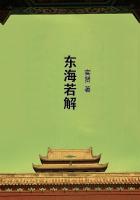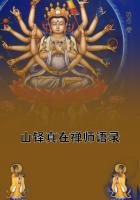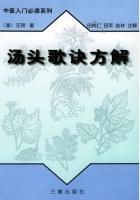'This is very singular, very singular, Lady Scatcherd; very singular indeed; very singular; quite unusual. I have come here from Barchester, at some considerable inconvenience, at some very considerable inconvenience, I may say, to my regular patients; and--and--and--I don't know that anything so very singular ever occurred to me before.' And then Dr Fillgrave, with a compression of his lips which almost made the poor woman sink into the ground, moved towards the door.
Then Lady Scatcherd bethought of her great panacea. 'It isn't about the money, you know, doctor,' said she; 'of course Sir Roger don't expect you to come here with post-horses for nothing.' In this, by the by, Lady Scatcherd did not stick quite close to veracity, for Sir Roger, had he known it, would by no means have assented to any payment; and the note which her ladyship held in her hand was taken from her own private purse. 'It ain't about the money, doctor;' and then she tendered the bank-note, which she thought would immediately make all things smooth.
Now Dr Fillgrave dearly loved a five-pound fee. What physician is so unnatural as not to love it? He dearly loved a five-pound fee; but he loved his dignity better. He was angry also; and like all angry men, he loved his grievance. He felt that he had been badly treated; but if he took the money he would throw away his right to indulge in any such feeling. At that moment his outraged dignity and cherished anger were worth more than a five-pound note. He looked at it with wishful but still averted eyes, and then sternly refused the tender.
'No, madam,' said he; 'no, no;' and with his right hand raised with his eye-glasses in it, he motioned away the tempting paper. 'No; I should have been happy to have given Sir Roger the benefit of any medical skill I may have, seeing that I was specially called in--'
'But, doctor; if the man's well, you know--'
'Oh, of course; if he's well, and does not choose to see me, there's an end of it. Should he have any relapse, as my time is valuable, he will perhaps oblige me by sending elsewhere. Madam, good morning. I will, if you will allow me, ring for my carriage--that is, post-chaise.'
'But, doctor, you'll take the money; you must take the money; indeed you'll take the money,' said Lady Scatcherd, who had now become really unhappy at the idea of her husband's unpardonable whim had brought this man with post-horses all the way from Barchester, and that he was to be paid nothing for his time or costs.
'No, madam, no. I could not think of it. Sir Roger, I have no doubt, will know better another time. It is not a question of money; not at all.'
'But it is a question of money, doctor; and you really shall, you must.' And poor Lady Scatcherd, in her anxiety to acquit herself at any rate of any pecuniary debt to the doctor, came to personal close quarters with him, with a view of forcing the note into his hands.
'Quite impossible, quite impossible,' said the doctor, still cherishing his grievance, and valiantly rejecting the root of all evil. 'I shall not do anything of the kind, Lady Scatcherd.'
'Now doctor, do 'ee; to oblige me.'
'Quite out of the question.' And so, with his hands and hat behind his back, in token of his utter refusal to accept any pecuniary accommodation of his injury, he made his way backwards to the door, her ladyship perseveringly pressing him in front. So eager had been the attack on him, that he had not waited to give his order about the post-chaise, but made his way at once towards the hall.
'Now, do 'ee take it, do 'ee,' pressed Lady Scatcherd.
'Utterly out of the question,' said Dr Fillgrave, with great deliberation, as he backed his way into the hall. As he did so, of course he turned round,--and he found himself almost in the arms of Dr Thorne.
As Burley might have glared at Bothwell when they rushed together in the dread encounter on the mountain side; as Achilles may have glared at Hector when at last they met, each resolved to test in fatal conflict the prowess of the other, so did Dr Fillgrave glare at his foe from Greshamsbury, when, on turning round on his exalted heel, he found his nose on a level with the top button of Dr Thorne's waistcoat.
And here, if it be not too tedious, let us pause a while to recapitulate and add up the undoubted grievances of the Barchester practitioner. He had made no effort to ingratiate himself into the sheepfold of that other shepherd-dog; it was not by his seeking that he was not at Boxall Hill; much as he hated Dr Thorne, full sure as he felt of that man's utter ignorance, of his incapacity to administer properly even a black dose, of his murdering propensities and his low, mean, unprofessional style of practice; nevertheless, he had done nothing to undermine him with these Scatcherds. Dr Thorne might have sent every mother's son at Boxall Hill to his long account, and Dr Fillgrave would not have interfered;--would not have interfered unless specially and duly called upon to do so.
But he had been and duly called on. Before such a step was taken some words must undoubtedly have passed on the subject between Thorne and Scatcherds. Thorne must have known what was to be done. Having been so called, Dr Fillgrave had come--had come all the way in a post-chaise--had been refused admittance to the sick man's room, on the plea that the sick man was no longer sick; and just as he was about to retire fee-less--for the want of the fee was not the less a grievance from the fact of its having been tendered and refused--feeless, dishonoured, and in dudgeon, he encountered this other doctor--this very rival whom he had bee sent to supplant; he encountered him in the very act of going to the sick man's room.















